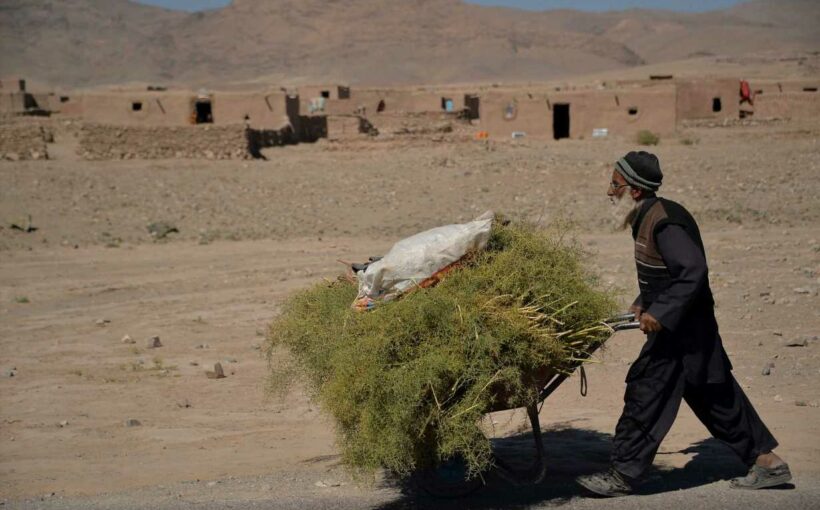- Afghanistan's gross domestic product could see a contraction of up to 30% following the Taliban takeover, the IMF said in its latest regional economic report.
- "These shocks could cause a 20–30 percent output contraction, with falling imports, a depreciating Afghani, and accelerating inflation," the report said.
- Jihad Azour, director of the IMF's Middle East and Central Asia department, said the country was deteriorating because of Covid and droughts, even before the Taliban seized power.
Afghanistan's gross domestic product could see a contraction of up to 30% following the Taliban takeover, the IMF said in its latest regional economic report.
Jihad Azour, director of the IMF's Middle East and Central Asia department, said the country's situation was deteriorating, even before Kabul fell.
"They were facing more than one shock — drought, Covid," he told CNBC's Hadley Gamble. "Therefore, what we foresee and fear is a sharp contraction."
The report also noted that non-humanitarian aid has been halted, foreign assets mostly frozen and Afghan banks have been crippled by cash shortages after the Taliban returned to power.
"These shocks could cause a 20–30 percent output contraction, with falling imports, a depreciating Afghani, and accelerating inflation," the report said. "The resulting drop in living standards threatens to push millions into poverty and could lead to a humanitarian crisis."
Additionally, "the turmoil is fueling a surge in Afghan refugees" that could burden public resources in refugee-hosting countries, pressure the labor market and create social tensions, the IMF said, highlighting the need for assistance from the international community.
The G-20 last week pledged to help tackle the crisis in Afghanistan.
Azour said the IMF welcomes the international community's scaled-up humanitarian aid, and said there should be a focus on education and health services.
Economic outlook
The International Monetary Fund also incrementally raised its outlook for the Middle East and North Africa region.
It expects real GDP to grow 4.1% in 2021 and 2022, up 0.1 percentage points and 0.4 percentage points respectively from its April projection.
In the Caucasus and Central Asia, real GDP is expected to grow 4.3% in 2021 and 4.1% in 2022.
But the recoveries remain "divergent" and will be shaped by several factors including Covid-19 vaccination rates and high oil prices, the IMF predicts.
"Not all countries are growing at the same speed, and issues are still looming on the horizon," said Azour.
Affluent countries in the region have been able to speedily vaccinate their populations against Covid, while lower-income nations have faced "delayed and uneven" deliveries of vaccines.
Those that have higher vaccination rates will be more resilient to the emergence of new variants, the report said.
"We will not see good level of vaccination before mid 2022, which will also hurt the regional growth altogether," Azour said.
He also said oil prices will benefit exporters but increase inflation, which will hurt low-income earners.
U.S. crude futures were up 0.7% at $83.02 per barrel, while Brent crude futures gained 0.56% to trade at $84.80 per barrel on Tuesday afternoon in Asia.
Source: Read Full Article
